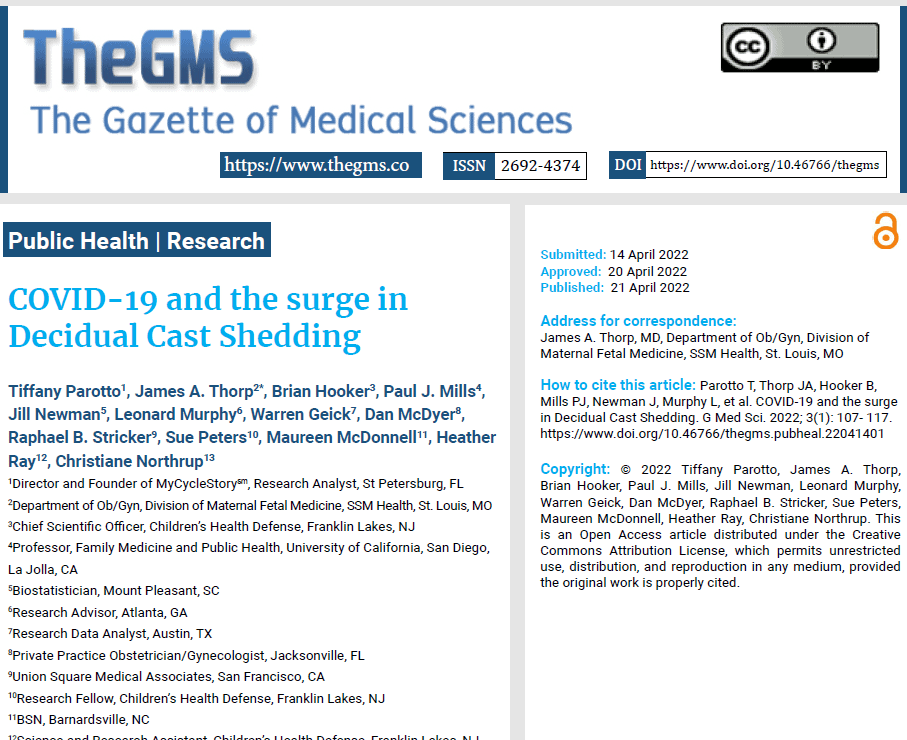Women’s Menstrual Anomalies Lead to Massive Research Study

Background
Spring of 2021 ignited a conversation on social media. Thousands of women were experiencing dramatic changes in their menstrual cycle and sharing those traumatic experiences. The conversation launched a myriad of profiles and Facebook groups where women shared personal stories of their strange irregularities.
After a Facebook group containing over 20k members and testimonies was deleted, it was evident that censorship on social media was going to prevent this conversation from continuing. The stories these women were sharing were being suppressed. In response, the MAMM team decided to leverage their network of experienced and published researchers, physicians and OB/GYN doctors to find a way to ensure that these women’s experiences were not going unnoticed.
The need to research these occurrences and give a voice to the women who were silenced was obvious. MyCycleStory(sm) survey was created by members of the MAMM team and their expansive network of experts, along with Children's Health Defense., It was imperative to capture these testimonies and bring the desperately needed conversation back to life.
What Was Found
As the submissions were collected over several months, it was clear there was something very serious and concerning happening to women. Along with several severe, irregular experiences, a massive increase in the extremely rare event of "decidual cast shedding" was reported by many women who responded to the MyCycleStory(sm) survey. As the submissions were collected, this discovery was worth looking into first, independent of other experiences. According to WebMD, "A decidual cast is a large, intact piece of tissue that you pass through your vagina in one solid piece. It happens when the thick mucus lining of the uterus, called the decidua, sheds in the near exact shape of your uterine cavity, creating a triangular 'cast.''
This occurrence is painful and often traumatic as it's not something that many women, nor their doctors, have seen or experienced or even heard of.
After looking through historical data surrounding women and the incidence of decidual cast shedding, researchers confirmed that the event was extremely rare, having found only around 40 cases studied over the last 100+ years. The MyCycleStory(sm) survey participants reported this occurrence 292 times over the course of 7 months after January 2021.
Looking back, the cause is relatively unknown. Things like stress, hormonal contraceptives, and ectopic pregnancies were considered possibilities in the past, but the data in this particular study does not support those conclusions. With the distribution of the COVID-vaccine around the same time we started seeing these reactions, we cannot help but wonder if there is a correlation that warrants further investigation.
Why This Matters
The conversation around the effects of fertility that COVID and the COVID-vaccine may be having on women needs to happen right now. With the CDC and government agencies assuring that the vaccine is safe for women and children, the research collected in this study warrants questioning the validity of that statement.
In the recently released Pfizer clinical trial data, it's stated that the fertility effects are unknown. So why are they saying it's safe if they don't know for sure? Why are they suppressing the stories of these women who are experiencing something so rare and traumatic? What is causing such a surge in a seemingly rare and traumatic experience? Could exposure to spike protein play a role? Is the temporal association with vaccine distribution more than coincidence?
All of these questions need to be addressed immediately.
What's Next
This study begins of one of the most important conversations needed today. The MyCycleStory(sm) team continues to dive into the other reported symptoms and their potential causes. Subsequent publications will focus on menstrual abnormalities not only in women of reproductive age but in post-menopausal women as well.
